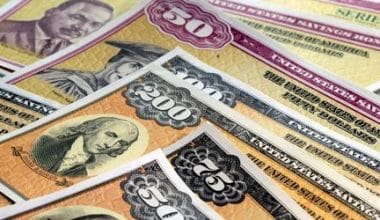Investing in the stock market is more than just buying low and selling high. For many investors, dividend stocks offer a reliable way to generate income alongside potential capital gains. Dividend stocks are shares from companies that regularly pay out a portion of their profits to shareholders. This system of receiving dividends provides investors with a consistent income stream, making dividend stocks especially attractive for those seeking long-term wealth growth or passive income. However, understanding how dividends work, along with the key dates and terms involved, is crucial for optimising their returns from these types of investments, and that is exactly what I’m going to help you with this article. Let’s take a look at Nigerian stocks that pay dividends, shall we?
Key Points
- Dividend stocks provide regular income through profit payouts, making them appealing for long-term wealth growth and passive income strategies.
- Investors can receive dividends in different forms, including cash, stock, property, scrip, or liquidating dividends, each with its own benefits and risks.
- Key dates, such as the ex-dividend date and payment date, are essential for ensuring eligibility and maximizing returns from dividend payouts.
- Companies like Zenith Bank, SFS REIT, and GTCO are leading Nigerian stocks offering high dividend yields, making them strong options for investors seeking consistent returns.
What Are Dividend Stocks?
Dividend stocks are shares from companies that regularly pay out a portion of their earnings to shareholders in the form of dividends. These payments are a way for companies to distribute excess profits back to their investors. Typically, dividend stocks come from well-established companies with consistent profitability.
Investors often prefer dividend stocks because they offer both potential capital appreciation and regular income. Dividends can be paid quarterly, semi-annually, or annually, depending on the company’s dividend policy.
Types of dividends

Whether you’re an experienced investor or just starting, understanding the different types of dividends can help you make better financial decisions. The types include:
#1. Cash Dividend
A cash dividend is the most straightforward type of dividend, where a company distributes a portion of its earnings directly to shareholders in cash. The amount shareholders receive depends on the number of shares they own and the dividend declared per share. For example, if a company declares a 2 naira per share dividend and you own 100 shares, you will receive 200 naira in cash. This method is appealing to investors who seek regular income without needing to sell their shares.
Cash dividends are generally seen as a sign of a company’s financial stability and profitability. Companies that regularly pay cash dividends are considered well-established with consistent profits. However, cash dividends can also reduce the company’s funds for future expansion and growth, potentially slowing down business development.
#2. Stock Dividend
A stock dividend differs from a cash dividend as shareholders receive additional shares instead of money. For example, if a company declares a 10% stock dividend and you own 100 shares, you would receive 10 more shares, bringing your total to 110. This increases your ownership in the company without you having to spend extra money.
Stock dividends allow companies to reward shareholders while conserving cash, which can be useful for future investments or paying down debt. Stock dividends can also dilute the value of each individual share, as more shares are issued, potentially lowering the stock price. However, they can enhance long-term value by increasing the number of shares an investor holds, which may be appreciated over time.
#3. Property Dividend
A property dividend involves distributing tangible or intangible assets instead of cash or stock. This can range from physical assets like real estate or equipment to non-physical assets such as intellectual property.
Property dividends are less common but can be a way for companies to distribute surplus or non-essential assets. For instance, a real estate company might distribute land or properties to its shareholders. While this can diversify an investor’s portfolio and provide a unique type of return, the value of the distributed asset may fluctuate, and selling it for cash can be difficult, depending on the market.
#4. Scrip Dividend
A scrip dividend offers shareholders the option to receive dividends in the form of promissory notes, which can be redeemed for cash or stock at a future date. Essentially, the company is issuing IOUs to its shareholders because it may not currently have the cash reserves to pay out dividends immediately.
Scrip dividends help companies avoid immediate cash outflow while still rewarding shareholders. This can be useful in times when a company is temporarily cash-strapped but expects to generate enough revenue in the future to fulfil the dividend obligation. However, the risk lies in the possibility that the company might not be able to pay the dividend later if financial conditions worsen, making this type of dividend less appealing for risk-averse investors.
#5. Liquidating Dividend
A liquidating dividend is issued when a company is dissolving and selling off its assets. Unlike regular dividends, which come from profits, liquidating dividends are paid from the company’s remaining assets after all debts and liabilities have been settled.
Liquidating dividends are typically the last payment a shareholder will receive from a company that is closing down. While it can offer a final return on investment, it usually signifies the end of the company’s operations. This type of dividend is less common and generally only occurs when a company is winding down, so it’s not a consistent source of income for investors.
Understanding Dividends and How Dividends Work
Dividends represent a reward to shareholders for investing in a company. They can take various forms, including cash or additional shares of stock. Mutual funds and ETFs also distribute dividends to their holders. While cash dividends are the most common, dividends paid in stock or other assets are also possible. Shareholders must approve dividends, typically through a vote, making dividends a significant decision in the company’s financial management.
The process begins with the company’s board of directors declaring a dividend. Once announced, the important dates to watch are the ex-dividend date (the cut-off for being eligible for the next dividend), record date (when eligible shareholders are confirmed), and payment date (when dividends are distributed). On the ex-dividend date, the stock price typically drops to reflect the payout. The terms necessary when understanding dividends include:
#1. Dividend Dates
- Announcement/Declaration Date: The date the board of directors announces the dividend.
- Ex-Dividend Date: The last day to own the stock to receive the upcoming dividend.
- Record Date: The company verifies who qualifies for the dividend.
- Payment Date: When shareholders receive the dividend.
#2. Dividend Yield
Dividend yield represents the ratio of a company’s annual dividend to its share price. This is a critical metric for assessing how much return an investor is getting relative to the stock’s price. High dividend yields may indicate a stable income source for investors.
#3. Dividend Reinvestment Plans (DRIPs)
Some companies offer dividend reinvestment plans, allowing shareholders to automatically reinvest their cash dividends into more shares of the company. This helps investors grow their investments by compounding their returns.
#4. Taxation of Dividends
Dividends are often subject to taxes. The tax rate can differ depending on whether the dividend is classified as ordinary or qualified, with qualified dividends generally taxed at a lower rate. It is important for investors to be aware of the tax implications of their dividend income.
Here is a FREE Investment Goals Checklist you can use to guide your steps:
Investment Goals Checklist.PDF
Top Nigerian Stocks that Pay High Dividend Yields in 2024
The top 10 Nigerian stocks that pay a high dividend include:
#1. Zenith Bank Plc
Zenith Bank is a heavyweight in Nigeria’s banking sector, offering top-notch financial services ranging from corporate and investment banking to retail and consumer banking. Founded in 1990 and headquartered in Lagos, it’s one of the most prominent names on the Nigerian Stock Exchange (NSE). Zenith’s strong performance continues to attract investors, thanks to its massive asset base, over 393 branches across Nigeria, and international offices.
For the period ended September 2023, Zenith reported impressive financials, with gross earnings reaching a staggering ₦1.329 trillion, a 60% increase from the prior year. With a dividend yield of 9.23% and an earnings-per-share (EPS) of 14.17 NGN, the bank presents an attractive proposition for those looking to invest in the finance sector. Their consistent buy rating from analysts makes it a top choice for anyone looking to gain solid returns on their investment.
#2. SFS Real Estate Investment Trust (SFSREIT)
SFS REIT offers a unique opportunity for investors interested in real estate. As the first Real Estate Investment Trust listed on the NSE, it pools funds from diverse investors—ranging from pension fund administrators to individual investors—to invest in income-generating properties. From residential homes to offices and shopping malls, SFS REIT is well-positioned in Nigeria’s real estate sector.
With a total income of ₦163.18 billion as of June 2023, SFS REIT boasts a strong performance. Its dividend yield of 8.34% makes it a solid choice for investors looking for steady, tax-free income from real estate investments.
#3. Guaranty Trust Holding Company Plc (GTCO)
GTCO, previously known as Guaranty Trust Bank, has grown from a traditional bank into a full financial services company. Expanding into several African countries and the UK, GTCO has positioned itself as a leader in the financial sector. It continues to deliver top-tier services across personal, corporate, and digital banking, appealing to a wide range of customers.
By mid-2023, GTCO had shown an impressive 217% growth in profit before tax, driven by a remarkable increase in earnings to ₦672.6 billion. Its dividend yield of 8.28% underscores its dedication to rewarding shareholders, and its innovative approach keeps it at the top of the list for investors.
#4. Custodian Investment Plc
Custodian Investment Plc offers life and non-life insurance solutions, as well as pension management, making it a diversified investment powerhouse. Through its subsidiaries like Custodian & Allied Insurance and Crusader Sterling Pensions, Custodian has become a go-to for individuals and corporations looking for comprehensive financial solutions.
In 2023, Custodian’s revenues jumped to ₦121.8 billion, reflecting consistent growth. With a dividend yield of 7.87%, the company is not only delivering value but also ensuring its shareholders enjoy attractive returns on their investments.
#5. United Capital Plc (UCAP)
United Capital Plc has carved a niche as a top-tier financial services institution in Nigeria, offering services like investment banking, asset management, and trusteeship. Its diverse client base ranges from high-net-worth individuals to government agencies, showing just how versatile and essential it is in Nigeria’s financial ecosystem.
UCAP recorded a gross earnings figure of ₦26.9 billion in 2022 and a massive operating profit before tax of ₦13.5 billion. The dividend yield of 6.81% ensures that shareholders get consistent returns, making this company a strong contender in the financial services space.
#6. Chapel Hill Denham Nigeria Infrastructure Debt Fund (NIDF)
NIDF stands out for its focus on infrastructure, providing loans for projects that strengthen Nigeria’s economic backbone. This debt fund generates income primarily from interest on loans to infrastructure projects, positioning it as a unique investment option for those who believe in Nigeria’s future. In 2023, NIDF reported a profit before tax of ₦20.4 billion, showing steady profitability. Its dividend yield of 6.81% offers investors a combination of income and long-term growth potential in one of Nigeria’s most critical sectors.
#7. Chemical and Allied Products Plc (CAP)
As one of Nigeria’s oldest companies, CAP specializes in paints and coatings, with a long-standing presence in the Nigerian market. A merger with Portland Paints in 2021 has only strengthened its hold on the market, enabling CAP to offer a more extensive range of products to both individual and industrial clients.
In the first half of 2023, CAP reported revenues of ₦9.78 billion, growing by 12% year-on-year. Its dividend yield of 6.46% and solid operational results make it a lucrative option for investors seeking returns in the manufacturing sector.
#8. Africa Prudential Plc (AFRIPRUD)
Africa Prudential specializes in share registration and corporate services. With innovative solutions and a strong foothold in investor relations, the company has become a trusted partner to Nigeria’s top corporations. As of June 2023, AFRIPRUD reported revenues of ₦1.21 billion, with a profit of ₦415.07 million after tax. Its 6.29% dividend yield ensures that investors continue to benefit from the company’s steady financial performance.
#9. Okomu Oil Palm Company Plc
Okomu Oil is a leading player in Nigeria’s agricultural sector, focusing on palm oil and rubber. Established in 1976, it has grown to become one of the country’s largest agricultural enterprises, contributing significantly to food production. In 2023, Okomu Oil recorded a turnover of ₦74.99 billion, reflecting strategic expansion and growing demand for its products. The company’s dividend yield of 6.11% makes it an excellent choice for investors interested in agribusiness.
#10. TotalEnergies Marketing Nigeria Plc
TotalEnergies is a well-established player in the oil and gas sector, with a network of over 570 service stations across Nigeria. Offering a wide range of energy products, TotalEnergies is a household name in the downstream sector.
As of September 2023, TotalEnergies posted revenues of ₦422.58 billion, with a dividend yield of 6.06%. The company’s steady growth and strong market presence ensure that investors can enjoy consistent returns in one of the most vital sectors of the Nigerian economy.
Dividends are commonly distributed to shareholders quarterly, though some companies may pay dividends semi-annually. Payments can be received as cash or as reinvestment into shares of company stock.
Is It Safe To Invest In Stocks In Nigeria?
It is safe to invest in stocks in Nigeria, considering you put your money where your mouth is. This means that you must understand the stock and the company you are investing in, in terms of short- and long-term viability, to ensure the safety of your funds.
How Do You Invest in Dividends?
Investing in a dividend stock is no different from investing in any other stock. You’ll need a brokerage account, which can easily be set up through an online broker, in order to place a trade. Once your account is set up and funded, you can choose which dividend stocks to invest in.
Conclusion
These companies represent the best of Nigeria’s dividend-paying stocks in 2024. Whether you are looking for stability in sectors like banking, real estate, or energy, these firms offer attractive returns with solid financials to back them. With dividend yields ranging from 6% to over 9%, they are well-positioned to deliver value to their shareholders in both the short and long term.
- Online Investment Platforms That Pay Daily In Nigeria
- How to Buy Shares in Nigeria Without Breaking the Bank 2024
- How To Invest in Real Estate in Nigeria: Tips You Need
- How To Buy Shares On Facebook From Nigeria






